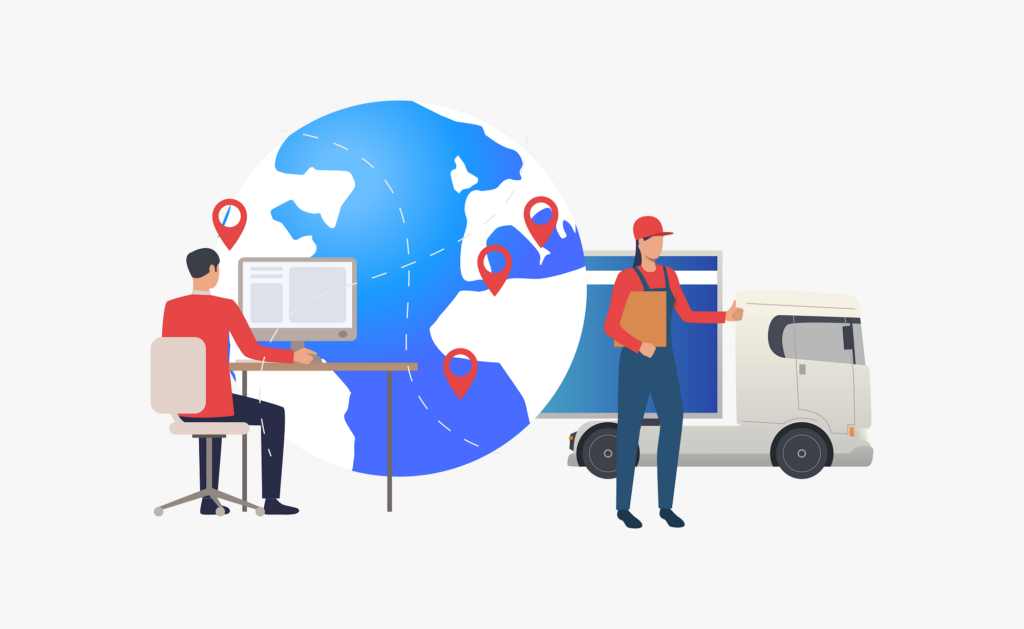Before managing logistics became a seamless system, fleet managers in New York only practiced simple tasks to deliver packages to any point they were assigned to. There were definitely many elements that needed improvement back then like a system that would improve the cost of operations as a whole, deadlines, and the safety of the fleet.
The development of a more innovative logistic system has become a big “to do” to fleet managers in New York because of the challenges to learn new systems, and completing the required courses and tutorials for management tools. Since most of their day consists of running the business, setting aside time to learn all of the newer tools has become tricky.
Admiring the use and importance of logistics goes as far back as Napoleon’s era. Delving even further back in history, Red Ball Express used logistic strategies to help the US Army. Over a three-month period, the team behind Red Ball Express helped the US Military by resupplying their provisions.
The impact that logistics made to battles during that particular period was quite impressive. In fact, Red Ball Express delivered more than 400,000 tons of gun ammunition, vehicle gasoline, and other supplies proven to be beneficial to the US army’s developments.
Looking back a century ago, the infancy of logistics has contributed to significant events. But fast forward to now, people are now used to seeing delivery vehicles around busy areas to move parcels daily.

How Fleet Managers in New York are Adapting to a Changing Landscape
Fleet managers in New York are now starting to consider advancing logistics by using technology to benefit their clients. The abrupt change in attention to logistics is primarily because of trends. Various digital platforms have emerged and improved throughout the decades, more particularly to service e-commerce brands.
The FTR Annual Conference is an excellent reference to use for everything involving the progression of logistics, especially since they typically have an impressive panel lineup. Brent Hutto from Truckstop.com did a great job of explaining how data has helped to change the industry related to all things logistics.
According to him, relying on digital data allows freight-matching technology to improve many aspects of logistics. Operators are also starting to get younger and younger as time passes and their standards seem higher because of the technological educational abilities and experiences they are used to.
That being said, audience expectations have also changed; most of them are adamant when it comes to tracking their deliveries, which benefits everyone involved in the supply chain because it keeps everyone on their game.
Most of these younger truck owners face several challenges, and Ramirez cited that one of the biggest of them is the rates.
Fast Action Body Repair on Smart Trucks
Claudio Ramirez of Fast Action Body Repair expressed his thoughts about logistics in the changing landscape. He says that everyone in the industry should be exposed to this change and get used to it. Ramirez also emphasized that using digital solutions has fine-tuned the entire process, saying that it is the primary reason the industry is improving.
Fleet managers in New York are now relying more on digital platforms to manage their data and execute their processes in a more efficient manner. That’s why there has been an increase in the need of electronic equipment to accelerate the process behind logistics.
Smart freight vehicles are the solution to many of the problems that the logistics industry has faced because they are now improving and decreasing problems that have been negatively effecting deliveries over the years.
It’s not just useful for the shippers alone, but it is an essential asset for everyone involved in the delivery process. Smart freight trucks facilitate everything that is needed to decrease the volume of problems that fleet managers in New York are facing.
Going back to Claudio Ramirez of Fast Action Body Repair, he elaborates that the key to utilizing the benefits of smart freight trucks is creating a platform or a network that oversees every process involved.
For instance, Fortune 500 transportation and logistics firms have successfully implemented the concept in their system. They also have an application called the J.B. Hunt 360, which allows remote processing and management to be a lot easier and more accessible.
For everything to work seamlessly, it has a user-friendly interface, displaying crucial aspects to logistic data such as rates, tracking, and price quotes. It includes a dashboard that is also ready to use for users who want to view all their spending, as well as package statuses.
While technology has helped logistic operations to improve, the full scope of the process will forever keep fleet staff offices busy. Some work remotely and others work on-site to keep the processes running strong and consistent.
Fleet managers in New York have begun to utilize data to stay up to date with the times, but it is safe to say that it is still in its initial stages. Many influencers in the trucking and logistics industry agree that virtual smart truck monitoring will be a crucial factor in the success of the industry’s advancements.
Keep checking out our blog to stay up to date with advances in the trucking industry.
